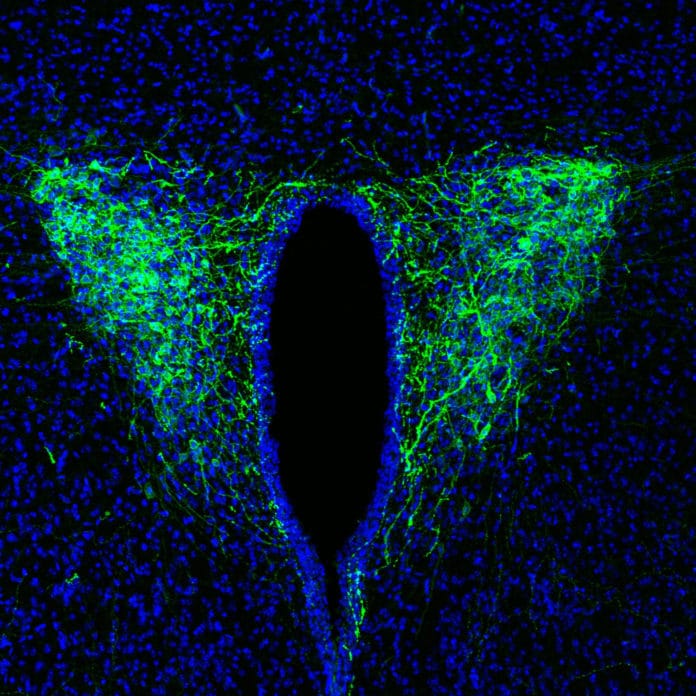A circadian rhythm is a roughly 24-hour cycle in the physiological processes of living beings. The rhythm monitors the sleeping and feeding patterns of all animals, including human beings.
The central circadian clock is located in the brain’s suprachiasmatic nucleus (SCN) neurons, regulates the sleep-wake cycle.
During life-threatening situations, the circadian rhythm signal is shut off to keep the animal awake so that it can escape from danger even when it would usually be time to sleep.
It is well-known that the circadian clock and stress affect sleep, but it was unclear which neural pathway is crucial for the circadian regulation of sleep and wakefulness.
Scientists from Nagoya University conducted a study using mice to determine that pathway. They focused on corticotropin-releasing factor (CRF) neurons located in the hypothalamus’s paraventricular nucleus. The CRF neurons are known to play a significant role in stress response.
They examined how sleep and wakefulness in mice would be influenced when the CRF neurons were activated. The outcomes demonstrated that the actuated CRF neurons kept the animals awake and made them move around vigorously, showing that their wakefulness was promoted.
The scientists also observed that CRF neurons remained active when the mice were awake and that when the neurons’ activity was suppressed, the animals’ wakefulness and locomotor activities were reduced.
Further examinations likewise indicated that inhibitory neurons in the SCN, called GABAergic neurons, assume a significant role in regulating CRF neurons’ action. The actuation of CRF neurons stimulates orexin neurons in the lateral hypothalamus, which brings about the advancement of wakefulness.
Scientists concluded that GABAergic neurons in the SCN control CRF neurons’ activity, which ultimately regulates the sleep-wake cycle.
Dr. Daisuke Ono of the Research Institute of Environmental Medicine at Nagoya University said, “We identified this neural pathway in mice, which are nocturnal animals. Further studies are required to elucidate how the nocturnal and diurnal difference is regulated in the brain.”
“In today’s society, sleep disorders are a serious problem. We hope our finding will contribute to the development of new therapies for insomnia and other sleep disorders caused by stress or a disturbed circadian rhythm.”
Journal Reference:
- Daisuke Ono et al. The mammalian circadian pacemaker regulates wakefulness via CRF neurons in the paraventricular nucleus of the hypothalamus, Science Advances (2020). DOI: 10.1126/sciadv.abd0384
